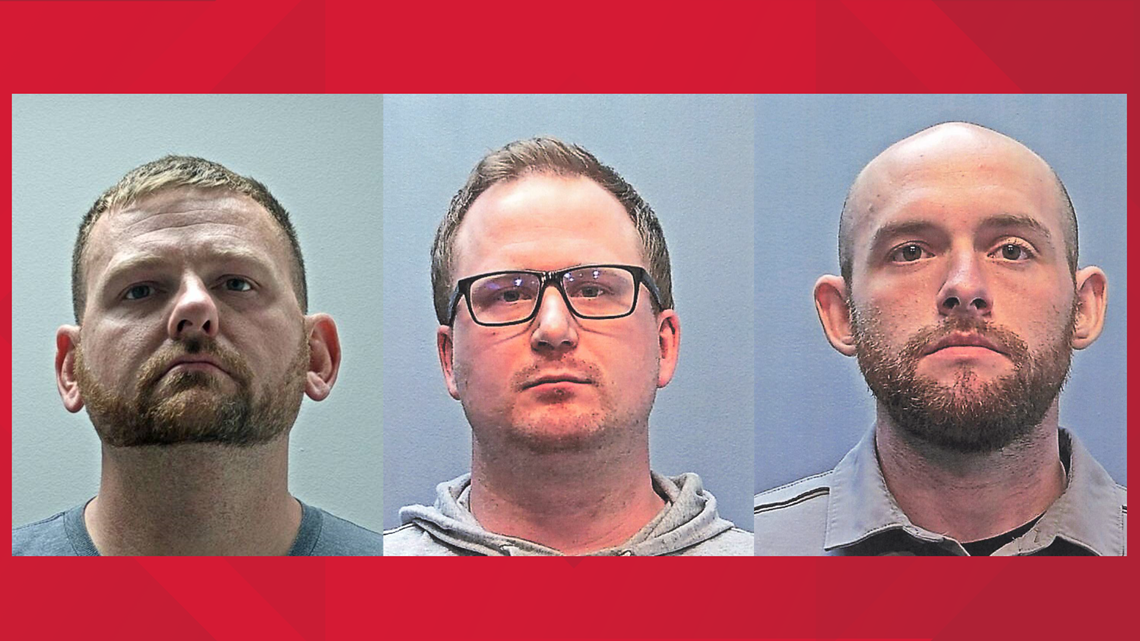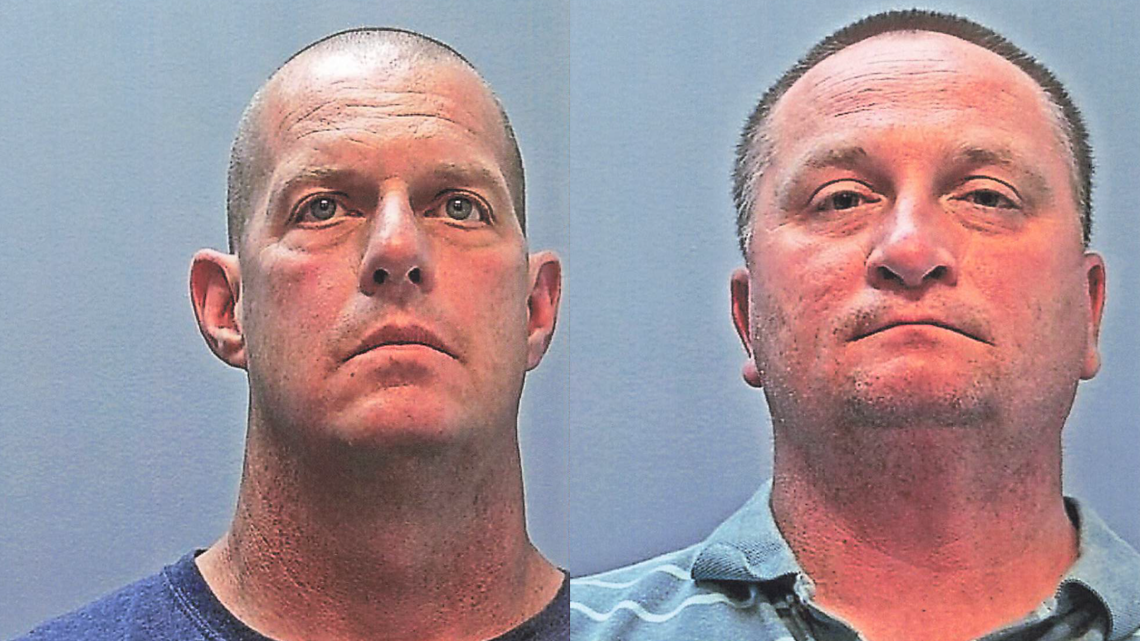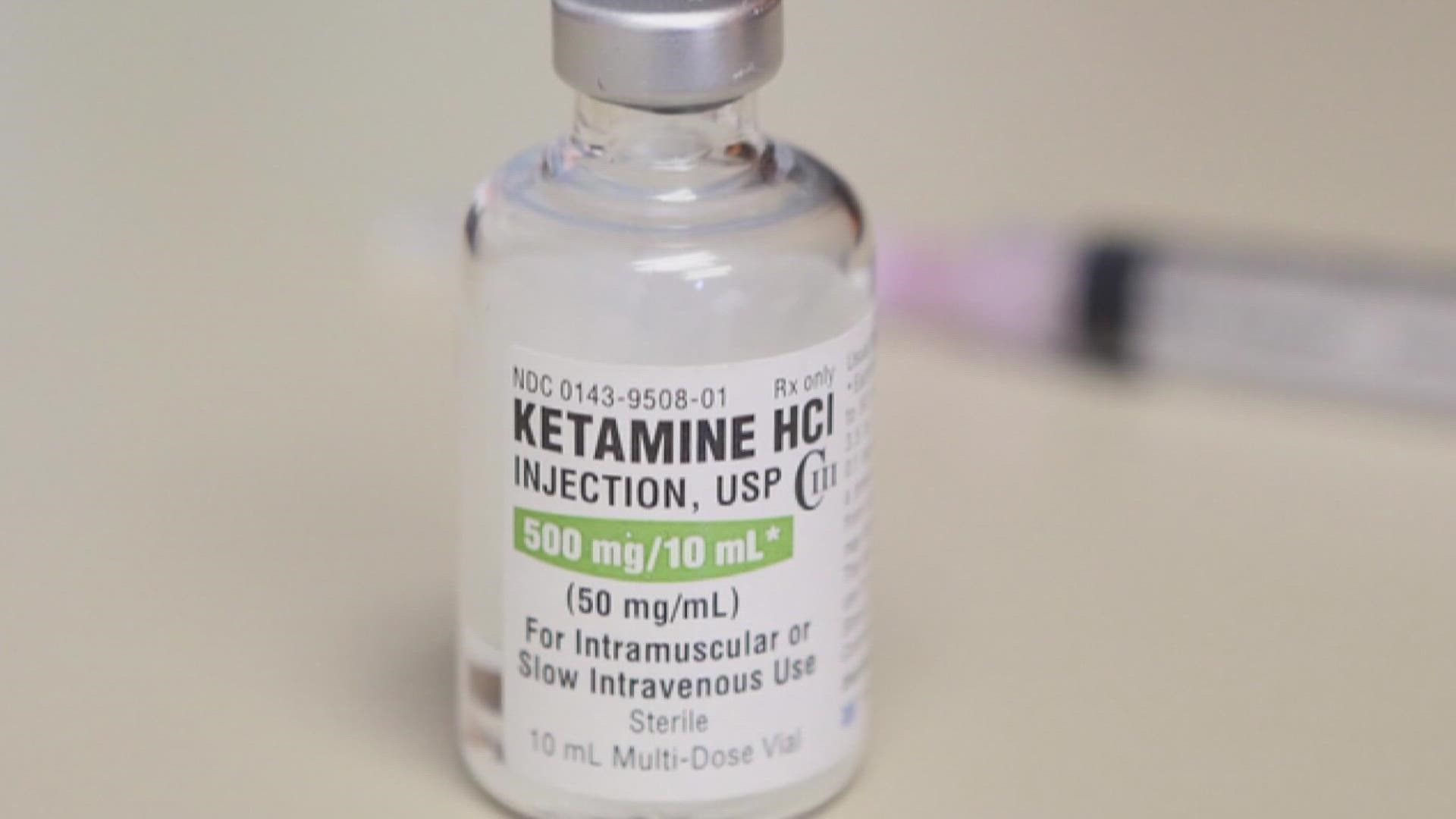AURORA, Colo. — The amended autopsy report released Friday related to the 2019 death of Elijah McClain lists his cause of death as complications from ketamine administration following "forcible arrest."
It also indicates that there's "no evidence" that injuries inflicted by police during his arrest contributed to his death. During the officers' contact with McClain, the officers threw him to the ground and put him into a carotid hold, according to the indictment.
Despite that, the amended report says they do not have "evidence of trauma or lethal asphyxiation during restraint sufficient to cause death."
The initial report listed McClain's cause and manner of death as "undetermined." The report was amended at some point before three Aurora Police officers and two paramedics were charged with his death last year. Colorado Public Radio first reported the news, which 9NEWS has confirmed.
McClain's manner of death remains "undetermined" in the amended report.
On Aug. 24, 2019, Aurora Police Department (APD) officers contacted McClain while he was walking home from a convenience store where he'd gone to pick up a drink. Three days later, on Aug. 27, he died at a hospital of undetermined causes, according to the Adams County Coroner's Office.


The amended opinion in the autopsy report released Friday mentions that since the original autopsy report was signed, the coroner's office received "additional material" including "extensive body camera footage" and witness statements.
The report also noted that some of those records were requested but not received prior to the original report.
After reviewing all of the additional material, a forensic pathologist consultant wrote that evidence suggests McClain received a dose of ketamine that was higher than recommended for his weight.
He went on to say he believed McClain would "most likely be alive but for the administration of ketamine." He also wrote, "I have seen no evidence that injuries inflicted by the police contributed to death."
The initial autopsy said McClain's cause of death was undetermined and, based in part on that, the Adams County district attorney at the time decided not to file charges.
9NEWS Legal Expert Scott Robinson called the amended autopsy report "very unusual."
"Let alone an amended report that's based on grand jury testimony, eyewitness accounts and body camera footage," he said.
Robinson believes he only has seen two amended autopsy reports in his entire career.
"It's almost unheard of for the cause of death to be changed from undetermined to a cause," he said.
Robinson also believes the amended report may bolster the defense of the three Aurora police officers charged with McClain's death.
"It certainly helps the officers far more than the paramedics, who, after all, are the individuals who administer the ketamine and decided the dose," he said.
In December 2020, the Colorado attorney general launched a grand jury investigation during which medical experts testified that it was the ketamine injection that killed McClain.
Former APD Officer Jason Rosenblatt and current Officers Nathan Woodyard and Randy Roedema were arrested in September 2021 after the statewide grand jury returned a 32-count indictment against them.
Aurora Fire Rescue (AFR) paramedics Jeremy Cooper and Peter Cichuniec were also indicted.
Each of the five people indicted faced one count of manslaughter and one count of criminally negligent homicide.


Roedema and Rosenblatt also faced a count of second-degree assault with intent to cause bodily injury and one count of a crime of violence, which is a sentencing enhancer related to that assault charge.
Cichuniec and Cooper also faced a count of second-degree assault with intent to cause serious bodily injury. They faced a second assault charge for "recklessly" causing injury with a deadly weapon, which in this case was related to the use of the sedative ketamine. They also faced a sentencing enhancer for both of those assault charges.


Adams County Coroner Monica Broncucia-Jordan said the autopsy was changed because of information that was revealed in the grand jury investigation into McClain's death. The change was first reported this month, but Broncucia-Jordan said she could not release the amended autopsy report because it contains confidential grand jury information.
The issue was taken to Denver District Court, where a judge ultimately said the unredacted report could be made public.
“It is unfortunate that public officials – both the Adams County Coroner and the Attorney General – did nothing to clarify Ms. Broncucia-Jordan’s obligations under the law when she was first asked to release the public record on August 12," said attorney Steve Zansberg, who represented a coalition of media outlets that sought the release of the document.
"Any public official who was genuinely respectful of their duty under the Open Records Act would have sought clarification from the Denver Chief Judge on that date. Instead, both of those officials did not do so until September 20, and then only in response to an order entered in Adams County, the only court with jurisdiction to resolve an Open Records case for a public record located in that district.
The Denver District Court did not even have a copy of the amended autopsy report; the Attorney General’s Office had to supply it to Chief Judge Baumann. He concluded, with little or no difficulty, that the report contains no information subject to grand jury secrecy.”
In November of last year, the City of Aurora reached a $15 million settlement with the family of McClain, which resolved a civil lawsuit filed by the family related to his death.
The city’s excess liability insurance policy will cover $10 million of the settlement – the maximum amount the policy will pay. The remaining $5 million will be paid out of the city’s general fund.
Suggested videos: Elijah McClain coverage

